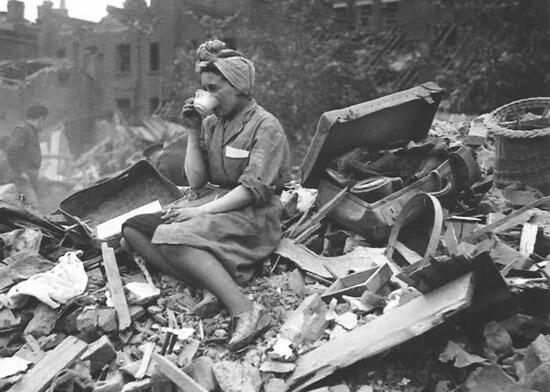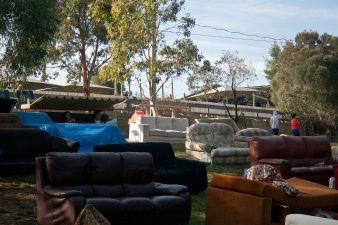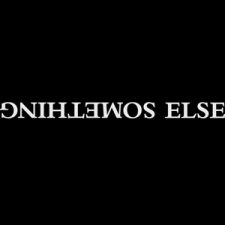Nonfiction
Some Clean Up Work
I’m not sure what I expected when both of my parents died 20 months apart. At 34 and then at 35, I knew there would be a lot I wouldn’t process for a long time. I also knew I deeply distrusted the word ‘process,’ with its implied expectations of productivity. What I didn’t anticipate is […]
I’m not sure what I expected when both of my parents died 20 months apart. At 34 and then at 35, I knew there would be a lot I wouldn’t process for a long time. I also knew I deeply distrusted the word ‘process,’ with its implied expectations of productivity. What I didn’t anticipate is that years after, I would still be working through their deaths — gradually more intellectually than emotionally — but still turning them over and over the way you would looking for a hidden price tag. What’s this gonna cost me.
If the death of parents is an inevitability, its universality doesn’t lessen its strange mojo. The moments I expected to feel the worst — the call from the care facility, the first day back at work — were instead pleasantly surreal. You can’t feel bad when you don’t feel anything. The teeth grinding came later; choosing which of the hundreds of my dad’s engineering drawings to keep, throwing out photos of company parties that happened twenty years before I was born, HoJo’s menus. The faces in the pictures, the long-closed restaurants, they didn’t mean anything to me. But they had to them and so throwing them out felt like a small betrayal.
But with each thing tossed, the spirit builds a necessary callous. When I cleaned out their house, my then-boyfriend came up with a mantra for me to repeat: things are just things. I thought it was a flimsy line of reasoning and — maybe more offensive — not fucking magical. Magical things are supposed to happen when people die, right? But I tried it.
A pair of my sister’s baby shoes she said she didn’t want — things are just things — my mom’s prom corsage from 1957 — things are just things — latch hook art — some things are more just things than others. The volume of junk accumulated over a human lifetime means not everything can carry the same psychic weight. There’s only so much you can pack and even less you’ll want to carry around.
But as the purge continued — packing up, moving out and selling what was left took nearly a month — the pace picked up. Unexpectedly, adding another step was what helped me work faster. It’s a handy quasi-Socratic hack and, if you want it, I’ll give it you.
Here’s how it works: you pick something up and you ask yourself an obnoxiously ponderous and cumbersome question: “What did it all mean?” It’s great because the final answer is always “Things are just things” but somehow it activates the magic inside that flimsy phrase.
Say hypothetically you pick up a sentimental object — a card you made for your mom as a kid — and then you ask the question. The best part is that the “it” is always undefined. You can rigidly narrow its scope to “This was for Mother’s Day in 1985” or you can broaden it to mean “She knew she was loved” — whatever you need it to be that day.
But you give the moment its proper reverence and then you say the final, definitive answer. Things are just things. Throw it out (mostly) guilt-free or put it in the box you’ll haul from apartment to apartment for the rest of your life. The answer presents itself.
For a long time, physicists thought the universe was expanding, but it turns out that even that may have been a trick of the light, they’re just not sure. In practice, if not contrast, our lived reality is frustratingly finite and penned in by very real limitations. Things are an opportunity cost. Sometimes worth it, often not. Either way, things are just things.
I kept my mom’s coffee mug. It’s a cheap mug from an amusement park and it has her name, Brenda, stamped on the side in a brown typeface that wouldn’t have been out of place on a HoJo’s menu. It sits on my bedroom dresser. Hey, earlier I was maybe a little too pat when I said what the answer always is. I don’t know any more than you do. I just remember that when I picked up her mug and I asked what it all meant, all I could come up with was “I don’t know yet.” So I kept it.




-150x150.jpg)

